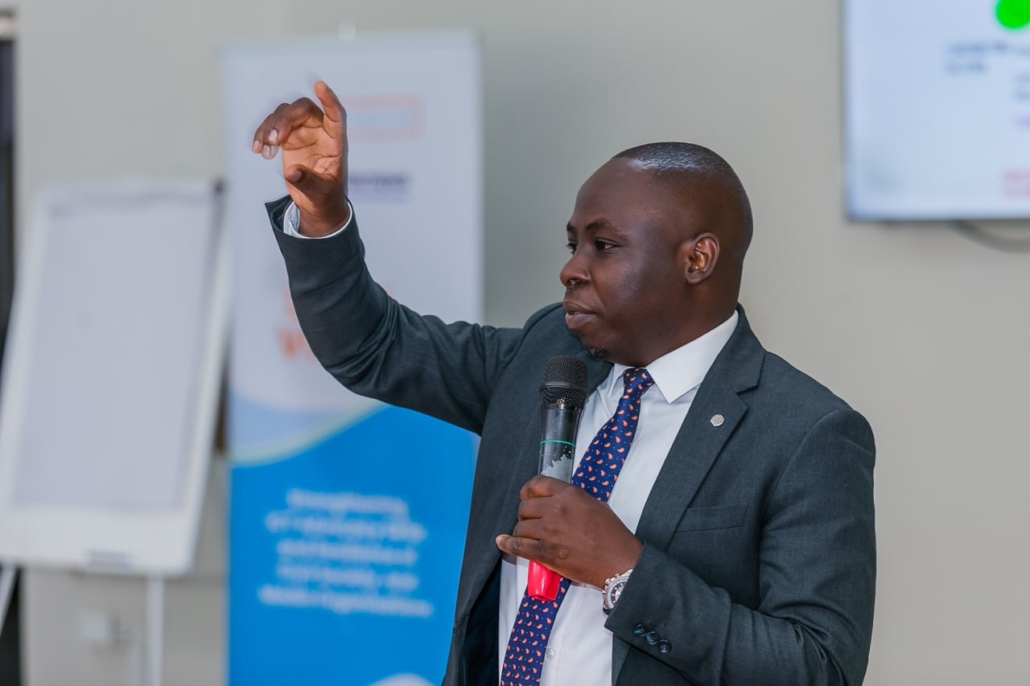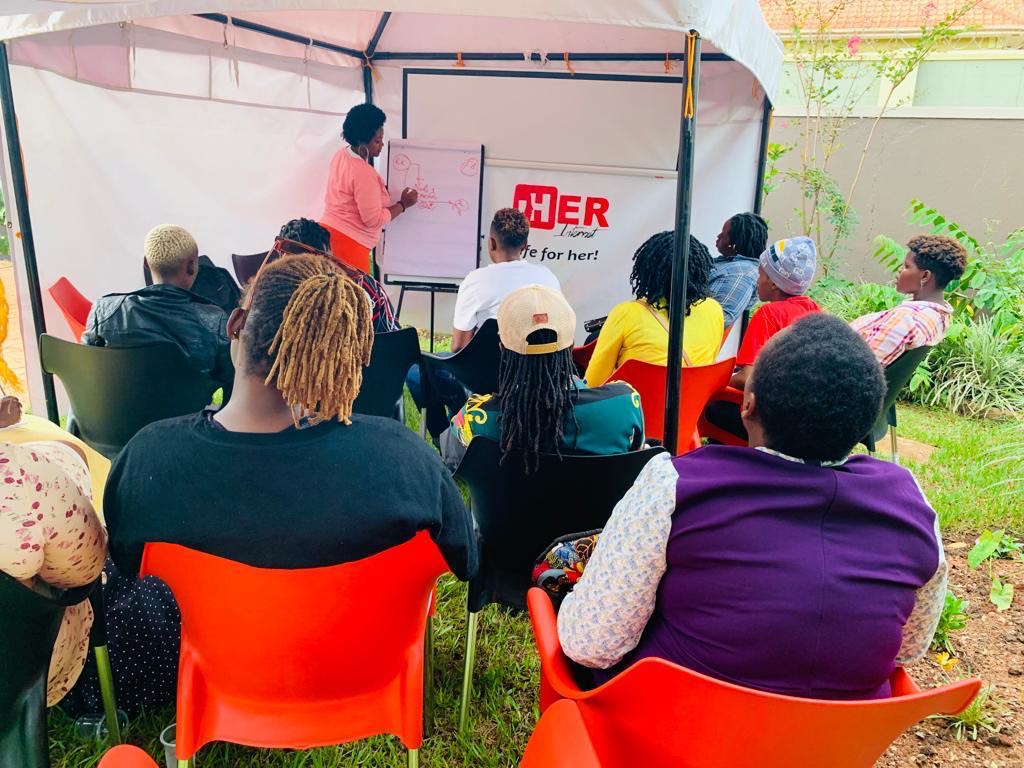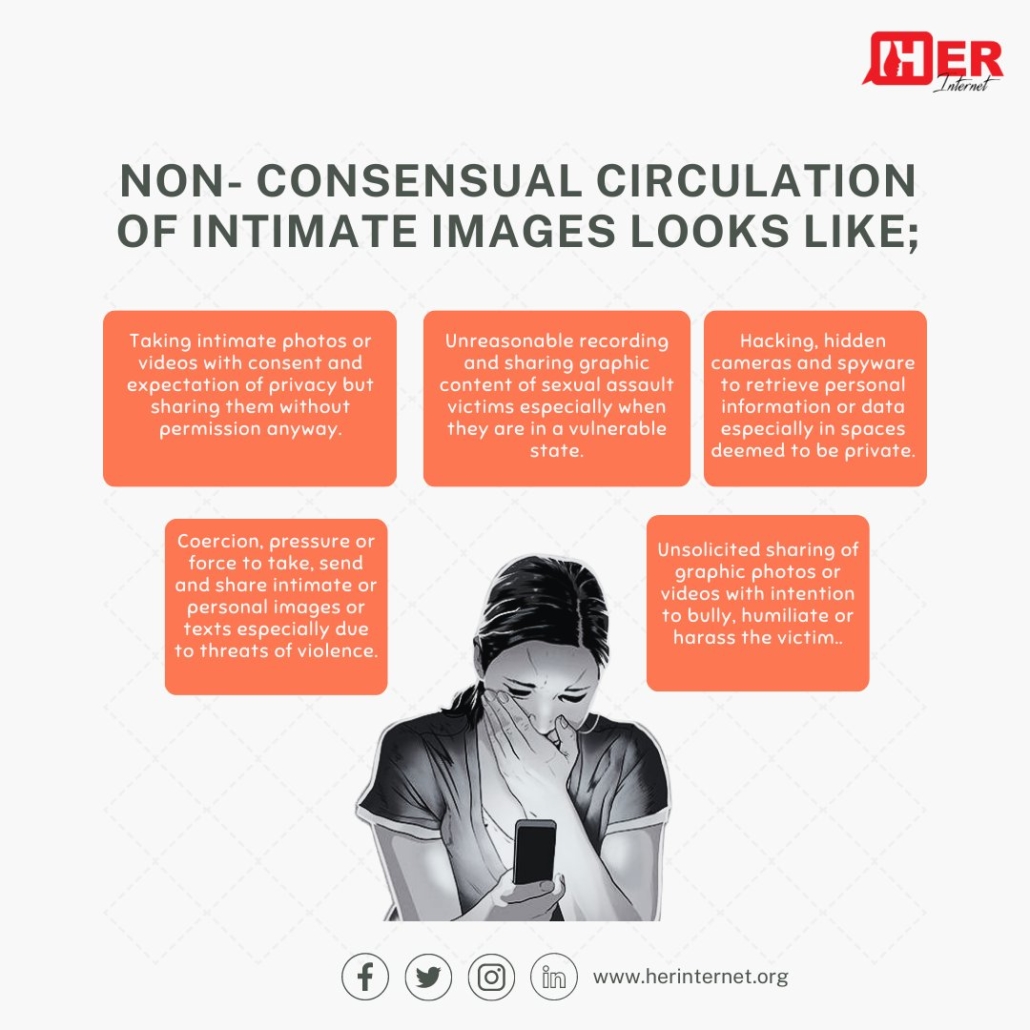PRESS RELEASE: HER INTERNET CALL TO ACTION ON NON-CONSENSUAL SHARING OF INTIMATE IMAGES.
/in News & Articles, Our Work/by Administrator(Kampala, 6 September 2023) – In the past two weeks, social media in Uganda has been awash with Non-Consensual Circulation of Intimate Images (NCII) with names of the victims used as trending hashtags across different social media platforms especially on Twitter and TikTok, and, further extended to porn sites as content.
A 2018 report by the UN Human Rights Council’s Special Rapporteur on Violence Against Women, Its Causes and Consequences notes that online violence against women may manifest in different forms and through different means, such as non-consensual accessing, using, manipulating, disseminating, and/or sharing of private data, photographs or videos; including sexualized images with the purpose of shaming, stigmatizing or harming the victim.
It is against this background that HER Internet strongly condemns this concerning and escalating form of online violence that disproportionately affects womxn, due to the adverse effects on the victims. Their intimate private images and videos were obtained in secret, uploaded and shared online without their consent and knowledge through breaching their right to privacy both online and offline.
The prevalence of NCII has been attributed to the normalization and trivialization of online violence against women which continues to be downplayed, in addition to the objectification of womxn’s bodies. Initially, the perpetrators of NCII were largely ex-partners of the victims with malicious intentions to humiliate, shame or revenge inciting the common reference ‘revenge porn’. However, NCII is not pornography, but confidential private content that is leaked and shared without consent of the victim and the term ‘revenge porn’ further undermines the magnitude of this type of online violence. Furthermore, the trend of NCII has evolved to include hackers who seek to blackmail and extort, as well as trolls and digital media outlets chasing for clout to increase their following or audience on social media. Due to the well-known fact on the nature of the internet which never forgets, any content distributed online will stick and is almost impossible to control. It is downloaded, saved, archived and/or redistributed with little to nothing to be done about such incidents.
NCII results in long term negative impacts on both survivors and victims that run deeper than what our physical eyes can see. These include; psychological struggles, victimization and vulnerabilities to other forms of online violence (such as cyberstalking, hate speech, body shaming, slut shaming) and finally, the loss of future prospects due to permanence of the victims and survivors’ graphic sexualized content online. This has threatened the presence of women online and forced them to shun or quit online spaces increasing the digital gender divide.
To date, there are no records of any perpetrator responsible for NCII being held accountable, investigated or summoned. Several cases continue to go unreported to law enforcement because in Uganda today, no law within the constitution criminalizes NCII. Victims are actually considered offenders under the Anti- Pornography Act 2014 for creation and distribution of pornographic content under Section 13 of the Act which criminalizes the production, trafficking in, publication, broadcasting, procuring, importing, exporting, selling or abetting any form of pornography. The Data Protection and Privacy Act 2019 does not help matters either since it is neutral and doesn’t mention how to regulate NCII data, coupled with the lack of knowledge on this form of online harm, and willingness to holistically deal with online violence among law enforcement and legal practitioners.
HER Internet’s Executive Director Sandra Kwikiriza says, “This form of online harm is not new, but society’s response to it has become increasingly insidious. The victims are left to deal with this violence on their own, with devastating consequences for their mental wellbeing. This experience has become normalized and invisibilized on social media and in society in general, driving victims to silence and shame, with profound effects on their confidence and wellbeing further exposing them to harm both online and offline. These attacks may not be physical, but they are often threatening, relentless, and limit womxn’s freedom of expression. Driving womxn and girls out of online spaces is hugely disempowering in an increasingly digital world and damages their ability to be seen, heard and participate in public discourse.”
We believe that using the human rights approach through multi-stakeholder partnerships within the ICT sector, legal fraternity, law enforcement, civil society together with the general public will help regulate and address the issues of NCII in addition to the recommendations suggested below;
- Report to respective official social media websites which entail policies that prohibit NCII to support the removal of the graphic content from their platforms and prevent any further distribution online.
- Also, reach out to us for assistance in case you or anyone that you know experiences any form of violence that breaches the community standards on any online platform through email: info@herinternet.org
- Periodically update your digital security and privacy settings both on your devices and online accounts to avoid emerging cyber threats and spyware.
- Advocate for provisions within the cyber laws and policies that are gender specific to protect the victims and support strategic litigation processes and efforts for justice.
- Raise awareness on the different manifestations of NCII and take early action on the threats of violence, cases of blackmail or extortion and harassment both online and offline.
- Survivors can also reach out to www.stopncii.org which is a free tool designed to support victims of NCII abuse through detection and removal of the images from being further shared online.
To download full statement; https://www.herinternet.org/wp-content/uploads/2023/09/NCII-Press-Release.pdf












 Facilitators, Justine Atim and Shawn Oseku brainstorm with the participants in a session on Principles and Recommendations to Gender Responsive Reporting.
Facilitators, Justine Atim and Shawn Oseku brainstorm with the participants in a session on Principles and Recommendations to Gender Responsive Reporting.